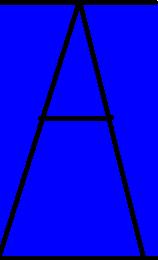The ever-wonderful Wikipedia, and their article on 'Fractal'.
A wonderful listing of free fractal generator programs. Some for both Windows and Mac.
 Homepage
© Alan Gilfoy, 2006
Homepage
© Alan Gilfoy, 2006
"The most beautiful thing we can experience is the mysterious. It is the source of all true art and science.".... Albert Einstein
Fractals are mathematical artwork. They involve taking a shape and doing the same thing to it repeatedly. These repetitions are called 'iterations'. Fractals are self-similar: one zoomed section of a fractal looks much like the whole. They also have 'infinite complexity'-no matter how far you zoom in, you'll still see detail. (The latter is especially true of the Mandelbrot set.)
Fractals often resemble objects in nature, with edges and shapes that can't be described in traditional (Euclidean) geometry. Clouds do not have perfectly straight edges. Neither do coastlines, or many other natural objects. In fract (er, in fact), the shapes of many molecules have fractal patterns. And speaking of 'coastlines', some of Benoit Mandelbrot's earlier work (before he discovered the Set) was a paper called 'How Long is the Coastline of Britain?'.
However, traditional geometry IS useful when talking about man-made objects.
"Smooth shapes are very rare in the wild but extremely important in the ivory tower and the factory."- Benoit Mandelbrot
There are nearly innumberable types of fractals, and it is even possible to create your own designs. Some of the ones I'm looking at: the Dragon Curve,Koch snowflake, Sierpinksi gasket, Hat Fractal, and of course the Mandelbrot set. (Click on the links to go to my 'Fractal Terms' page description of each type.
I have generated many fractal images myself,a nd I've put them up on my gallery page.
Fractal terms
I made an important school project out of fractals during my junior year (2005-2006). This was a combined effort of both my math class and my art class, and it counted in both. I'd like to thank my math teacher, Ken Steffen, for introducing me to these incredible patterns...
my final plan for that fractal project
Some outside fractal-related websites. NOTE: These links should be set up to open in a new window.
Cynthia Lanus- Fractal-based lesson plans
The ever-wonderful Wikipedia, and their article on 'Fractal'.
A wonderful listing of free fractal generator programs. Some for both Windows and Mac.
 Homepage
© Alan Gilfoy, 2006
Homepage
© Alan Gilfoy, 2006